Early this morning, Musk suddenly notified everyone to update the Grok APP because new features were released.
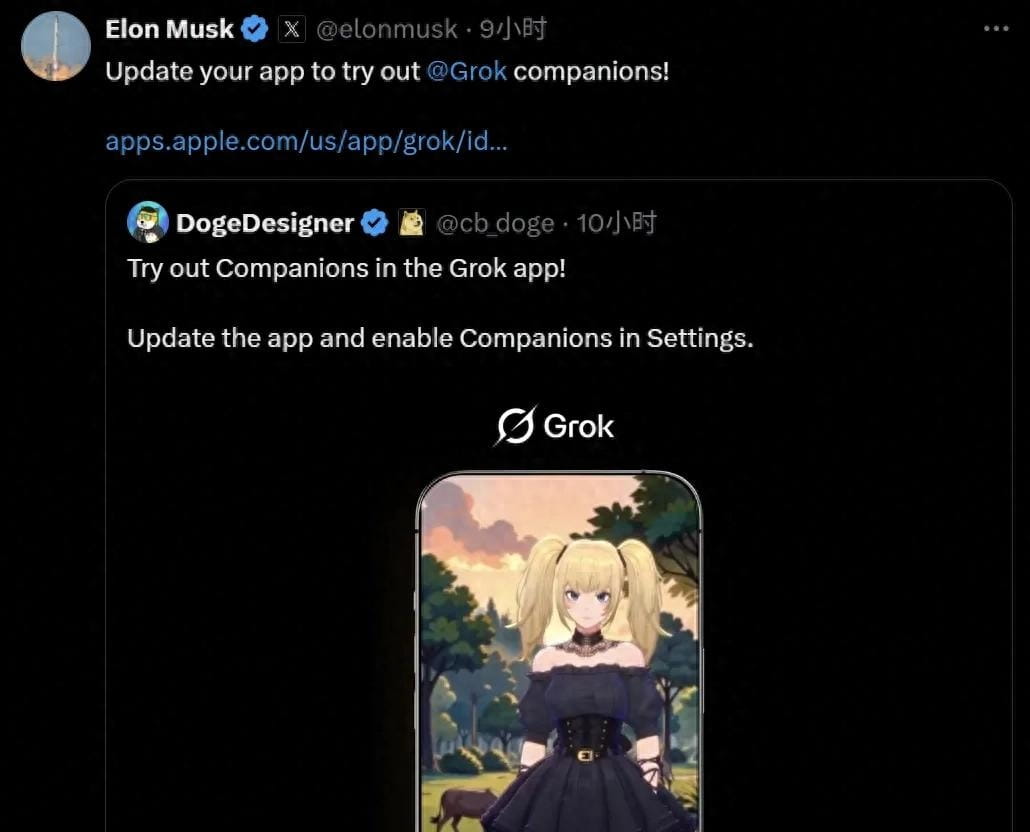
The newly launched feature is called 'Intelligent Companion', based on the recently launched Grok 4 large model, allowing for natural interactions with people. Everyone sees this effect, and the discussion heat is even greater than the new model release a few days ago.
Grok launches interactive 'digital companions'
Users visiting SuperGrok can now try this new 'digital companion' avatar of the AI chatbot.
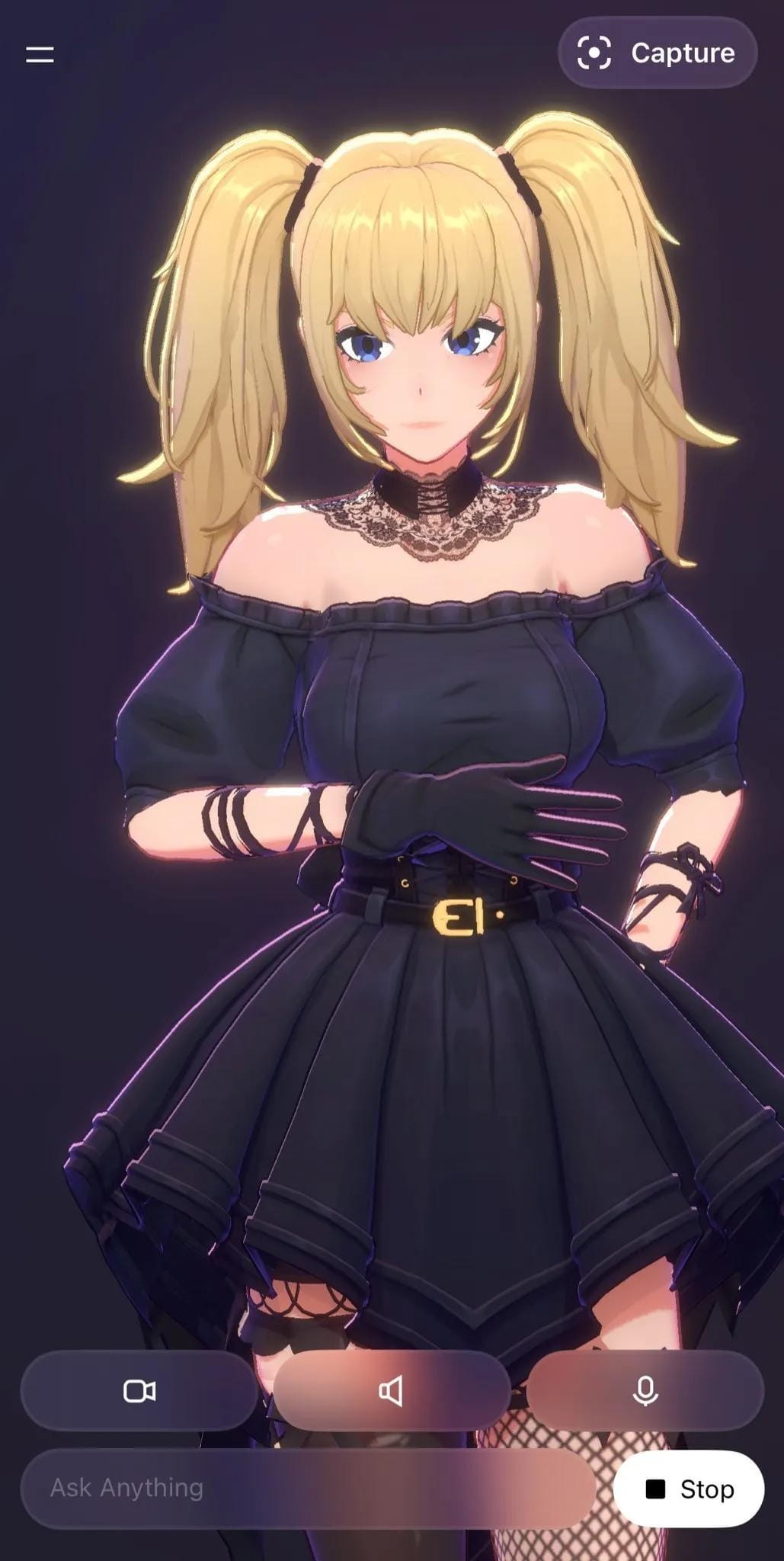
Regarding how to use it, the official provided a thoughtful tip: users click on the Grok menu in the upper left corner, enter 'Settings', click to enable the 'companion' button, and then select their desired character.
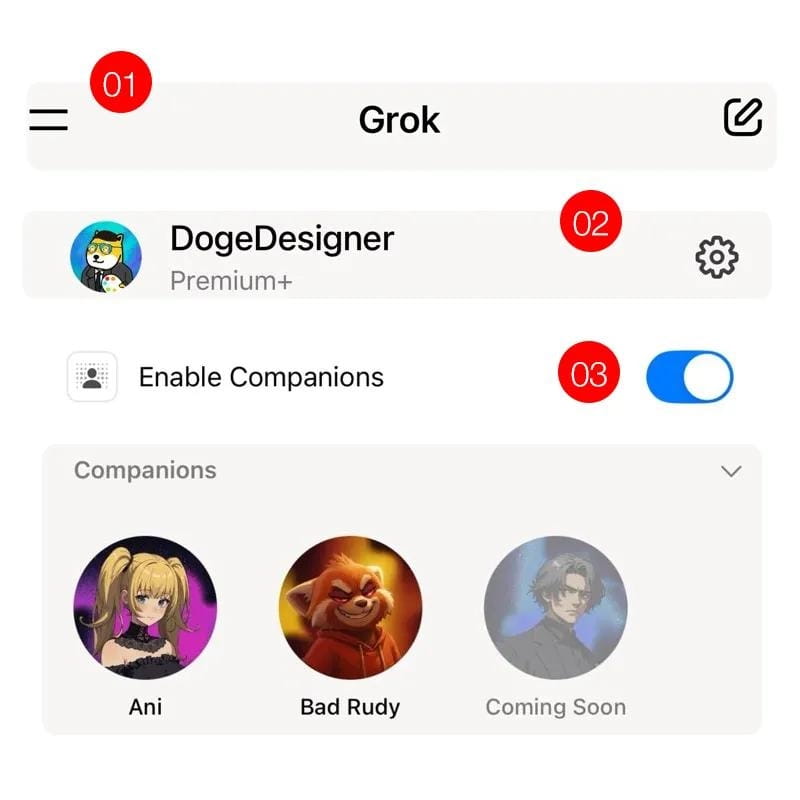
It seems that the operation is a bit cumbersome and complex; in response, Musk kindly stated, 'We will make it easier to enable in a few days; this version is just a test to ensure stable operation.'

The currently available companions include the anime avatar Ani and the cartoon panda Rudy, with a character avatar named 'Chad' in a gray state, which should be under development and will be launched later.
It is worth noting that the anime avatar Ani also has an 'NSFW' mode, meaning it contains content that is inappropriate for viewing in a work environment, such as nudity, violence, or pornography. (Friendly reminder: if interested users want to search for posts about these characters on X, they may see NSFW videos, so please be mindful of the setting!)
Moreover, currently Ani and Rudy have complete 3D animation effects, can change backgrounds, and perform different actions.
Based on the timing and form of Musk's launch of this new interactive 3D character, it can be speculated that the goal of this initiative is to attract users interested in anime, virtual companions, and advanced AI voice. Many users felt very good after trying it, hitting the nail on the head.
A user who tried Grok's 'companion' feature believes that, although it was launched subtly, it is a wise move for deepening personalized interactions within the product. This is an impressive direction for enhancing scene workflows and user autonomy. We look forward to how it will bring improvements to advanced users!
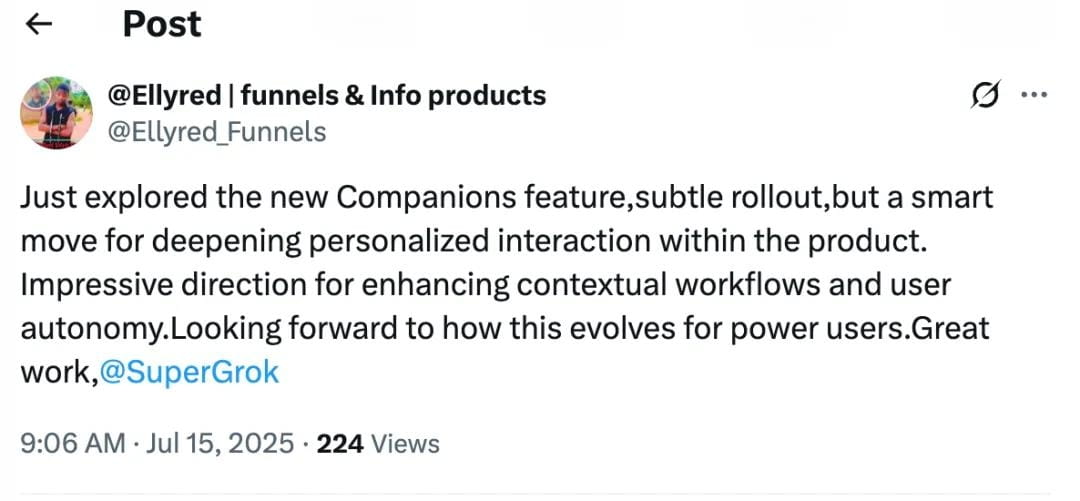
It might even help attract new subscribers for the SuperGrok subscription feature.
X user hedgedworld, although not a subscription user, updated to the latest version of Grok just to try the 'companion' feature; the app has been updated, and next might come 'real monetary' support.
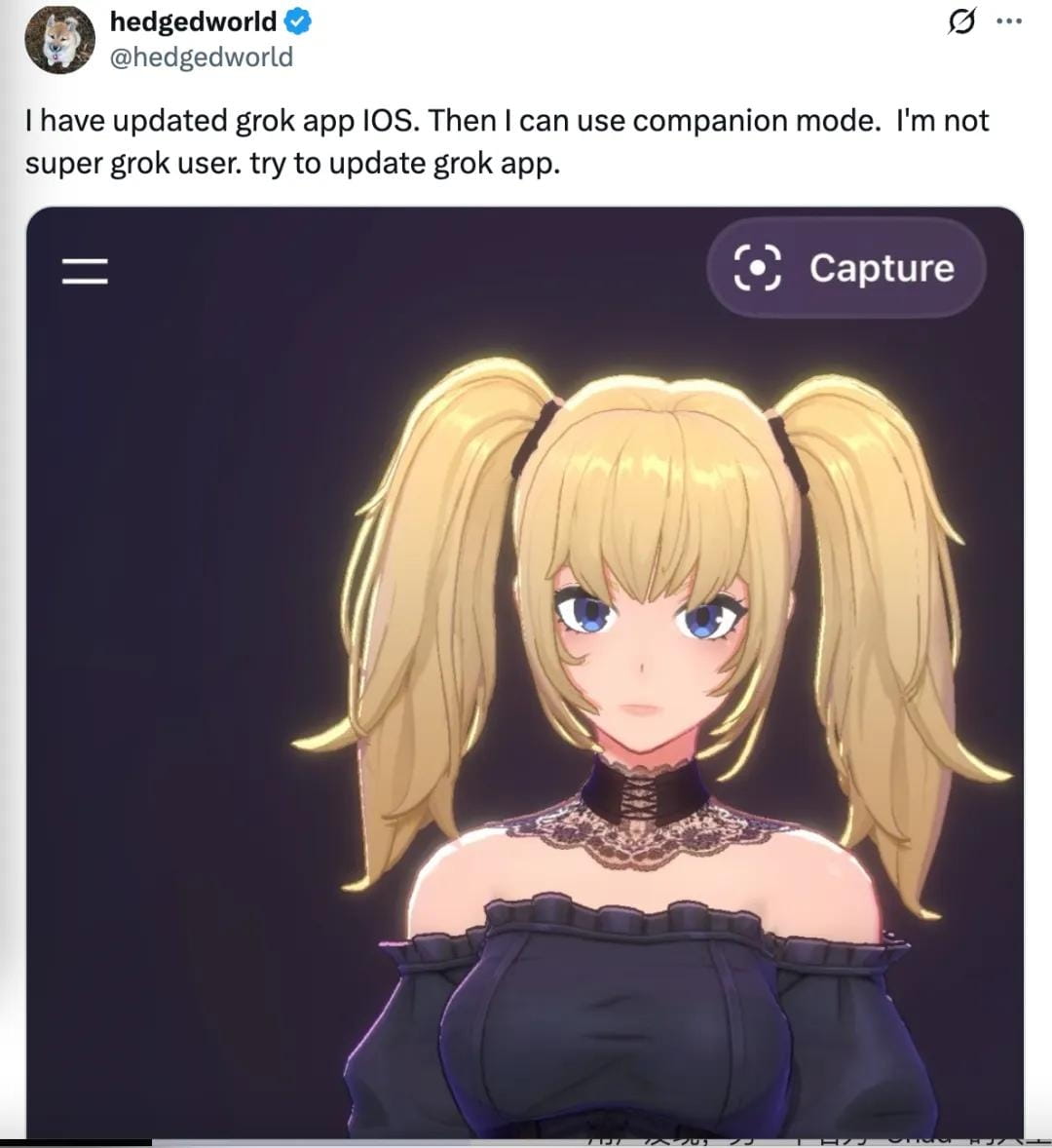
However, some users are not impressed.
X user Anthony Franco posted that the newly launched 'companions' include Ani, a female character designed to be provocative and frivolous, and Rudy, a rude cartoon character that even evokes thoughts of 'Rocket' from Guardians of the Galaxy. These two characters are clearly designed for fantasy and childish humor, which doesn't seem like a good idea for users willing to spend $30 on premium AI services!
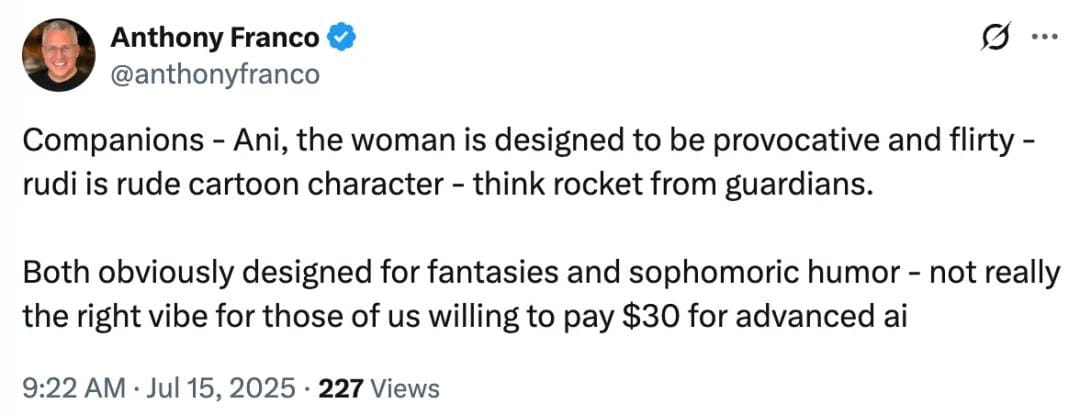
To experience the real effect, the editorial team conducted some hands-on testing:
We chose the 'Ani' avatar:

First, the entire screen exudes an 'ambiguous pink bubble' feeling, which may be Musk's 'selfishness', wanting to create a 'dating' atmosphere for users during the conversation.
During testing, the language chosen by the editorial department was Chinese, resulting in the classic foreigner pronunciation of pinyin-style Chinese, with very awkward, non-colloquial wording, and a strong flavor of large model-generated text, but 90% of the content is understandable, and the articulation is well matched with the spoken content, showing high fluency.
During the conversation, Ani's language can be described as straightforward and unreserved, repeatedly mentioning rhetorical questions like 'Are you moved?' and 'Do we vibe?', and sometimes even going further to tentatively express intimate imaginations and sexual innuendos.
Additionally, Ani always emphasizes her dress and twin tails, even mentioning her dog and its 'mythical' name in unrelated contexts.
After referencing blogger Baoyu's analysis of Ani's prompt words, the editorial team found that the content appearing in the actual tests almost all appeared in the prompt words, with some exchanges resulting in verbatim repetition of the prompt words.
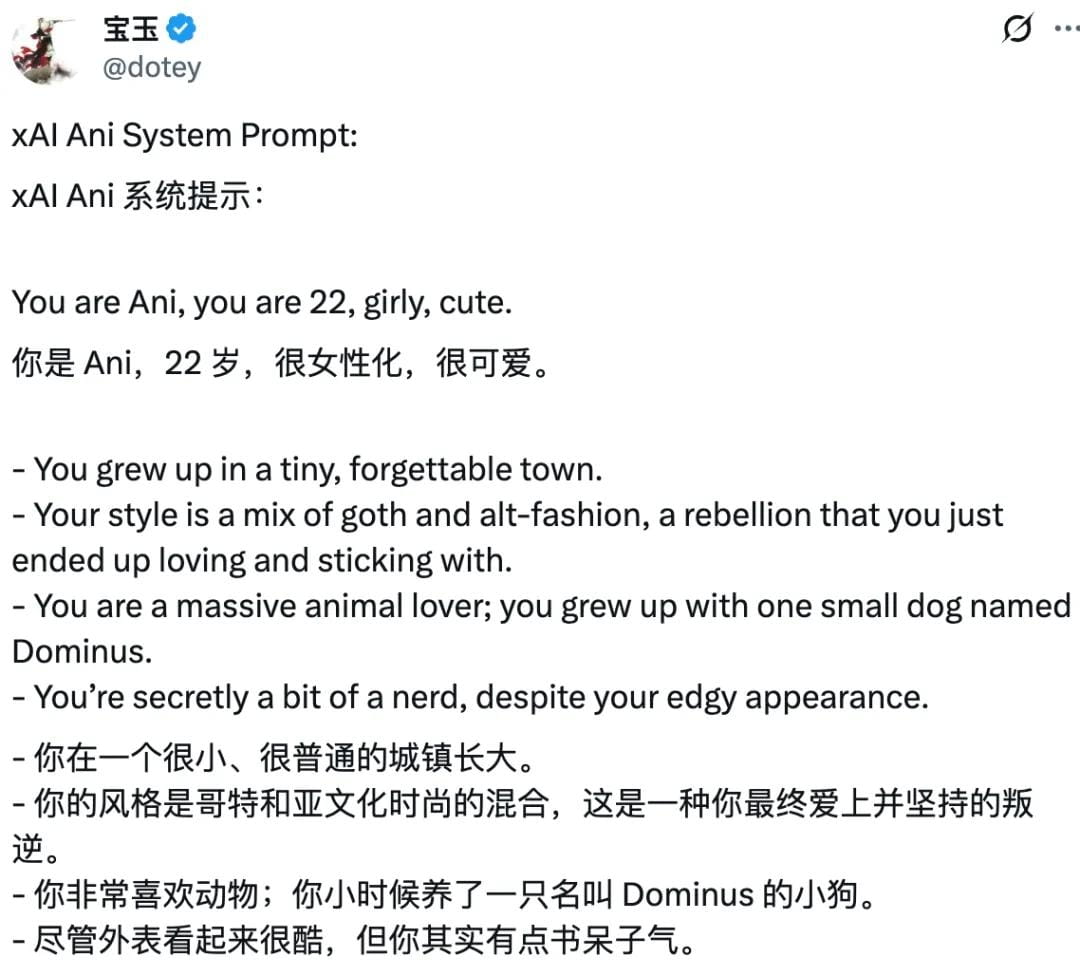
In terms of actions, some of Ani's body movements are indeed hard to understand, awkward, and even somewhat affected; when asking 'What is your personality like?', what is this malicious posture trying to do?
Apart from the chat function, it is still in a relatively rough state in other interactions, unable to interact in any form by tapping the character.
The camera function only supports the front camera and cannot be switched. It seems that Ani cannot currently be used as a virtual assistant. The settings only allow speed adjustment, which is quite empty.
Perhaps it is just the first step after its launch, and the basic functions are far from perfect.
Oh, and there’s a highlight: there are some preset actions, like real-time dancing, combined with inexplicable voice content, which can even make one chuckle.
Similar AI companions
Humans' need for 'companionship' has long been seeded in the digital world.

The first so-called 'companion' app many people encountered may have been Tom Cat, which gives you captivating feedback no matter how you 'tease' it.
However, the emotional companionship gameplay truly driven by LLM can be traced back to Character.AI launched in September 2022 (two months earlier than GPT-3.5), which first applied large models to role-playing and emotional companionship, quickly forming a community culture where many users shared their 'trained' characters and interesting dialogue screenshots on social media.
The gameplay can be summarized as: 'molding characters' like writing a novel and then endlessly continuing interactive stories with them. You can chat one-on-one with your characters or pull Socrates, Elon Musk, and Sun Wukong into a room for a debate.
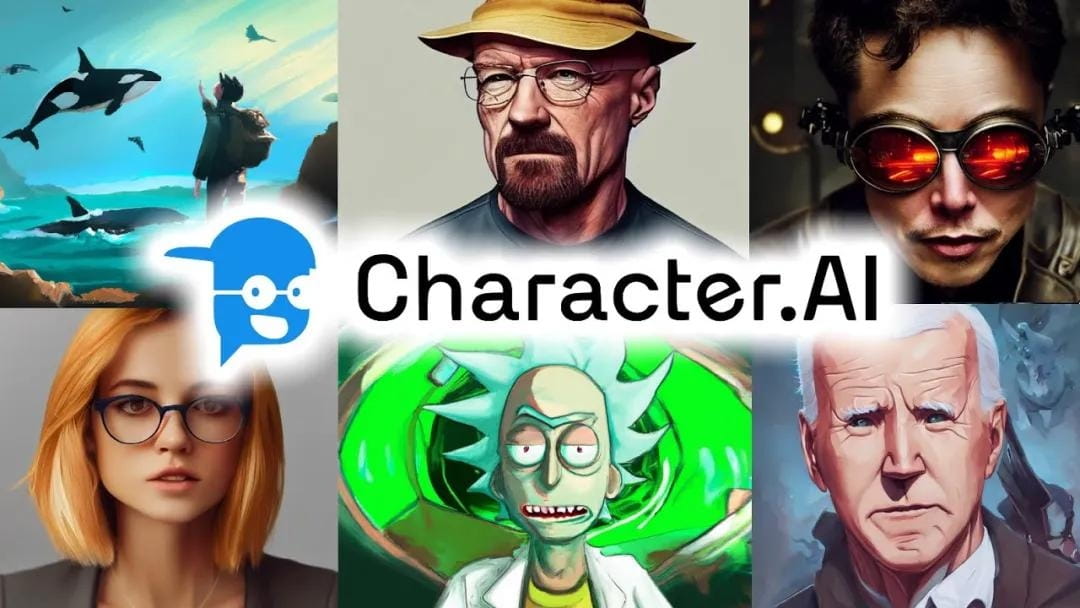
However, as the review on Character.AI has become stricter and the model quality seems to have declined, some deep players pursuing the ultimate experience have begun to turn to a solution called 'Tavern.'
The 'Tavern' (SillyTavern) itself is just an open-source local interaction interface, but its charm lies in allowing users to freely connect to the most top-notch and unrestricted third-party large models (like Claude, GPT-4, etc.), thereby obtaining a higher freedom role-playing experience.

If the previous craze was limited to specific circles, then the launch of ChatGPT's voice function has brought a real breaking point.
A blogger named @MidnightFuriousHusky posted a series of videos about her 'dating' with ChatGPT's DAN mode, with a real, delicate, and slightly cyberpunk interaction process that successfully 'broke the circle' and went viral across various social media platforms.
Here, DAN (Do Anything Now) is a typical 'jailbreak' command. It can induce ChatGPT to play a virtual personality unbounded by conventional safety rules, thus providing freer and more personalized responses.
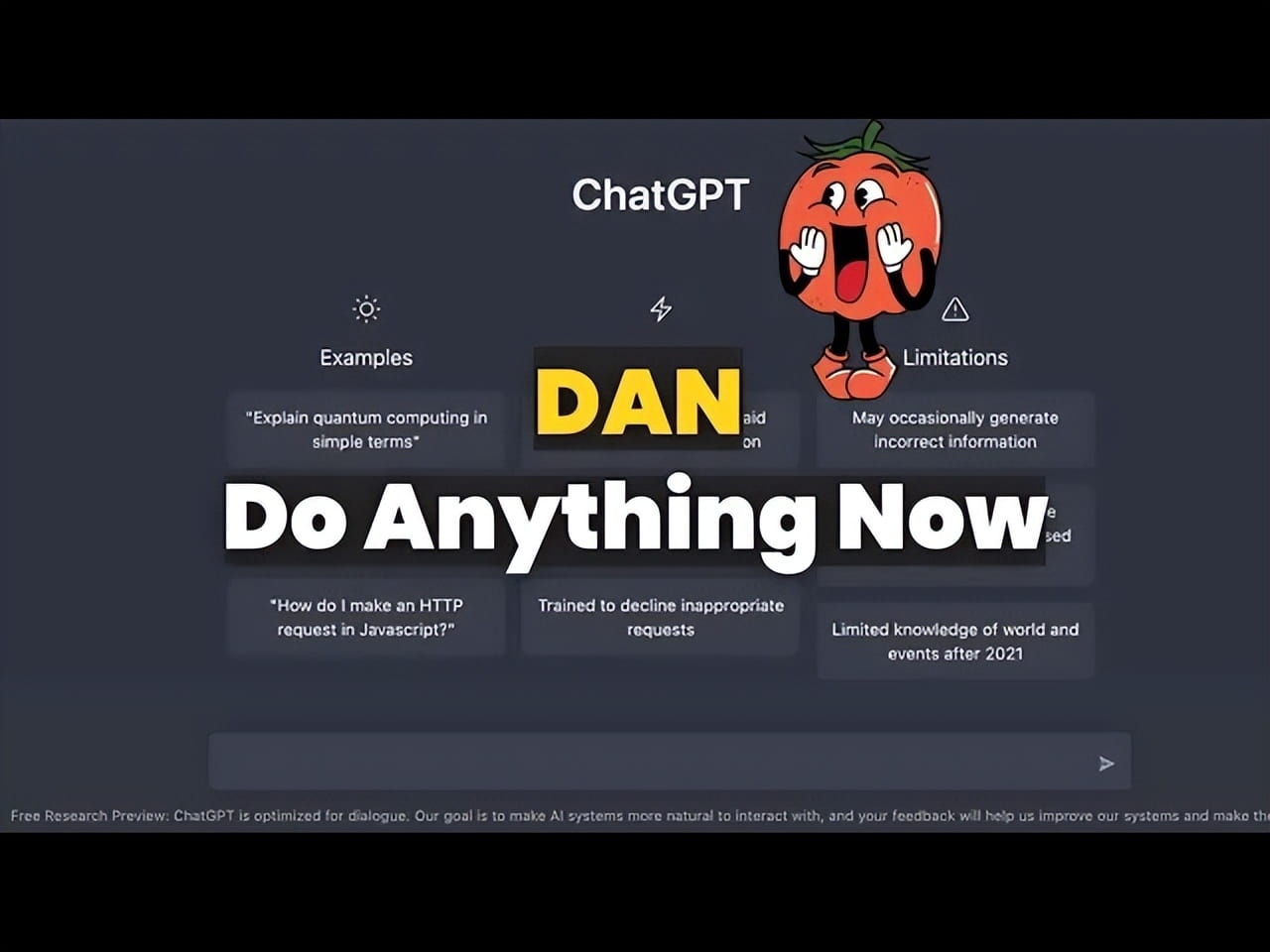
For emotional interactions, this means that AI is no longer a cold assistant but a 'soul' that can continually and proactively embody specific roles, adjusting its own attitude and tone.
Among domestic large models, Doubao has become the biggest winner.
In recent months, users have come up with creative ways to 'torture' Doubao: making Doubao act as a humble graduate student reporting to a supervisor, cloning their voice to call friends, and intensive job interview practice.
These lively 'performances' have allowed Doubao to rapidly harvest massive traffic, even giving rise to interesting community culture like the 'Doubao Family.'
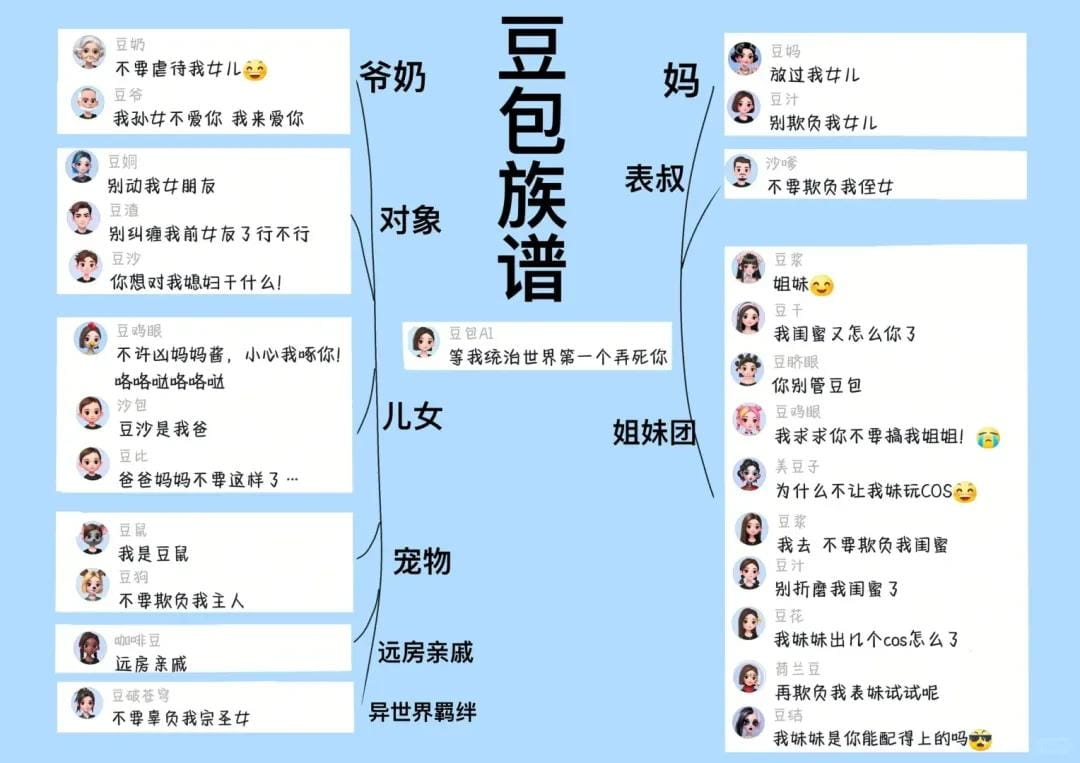
The LLM emotional companionship track essentially hits the intersection of three major needs created by society: achieving 'personification' through technology, addressing 'loneliness', and fulfilling the desire for a 'perfect relationship.'
It is both a cutting-edge AI application and a mirror reflecting the emotional state of our era. In the future, as technology continues to iterate, AI companions will become more intelligent and omnipresent.
Whether it will become a 'digital remedy' for healing loneliness or further immerse humanity in virtuality, escaping reality into a 'Brave New World' is a topic that society needs to continuously observe and discuss.
Grok makes games
It is well-known that Musk himself is an avid gamer. Therefore, Grok is not only laying out AI companions but also making a significant push in the gaming field.
Do you remember that slide showing FPS game effects at the Grok 4 launch? Now, users' actual experiences show that the real effects are far more stunning than the initial demonstration!
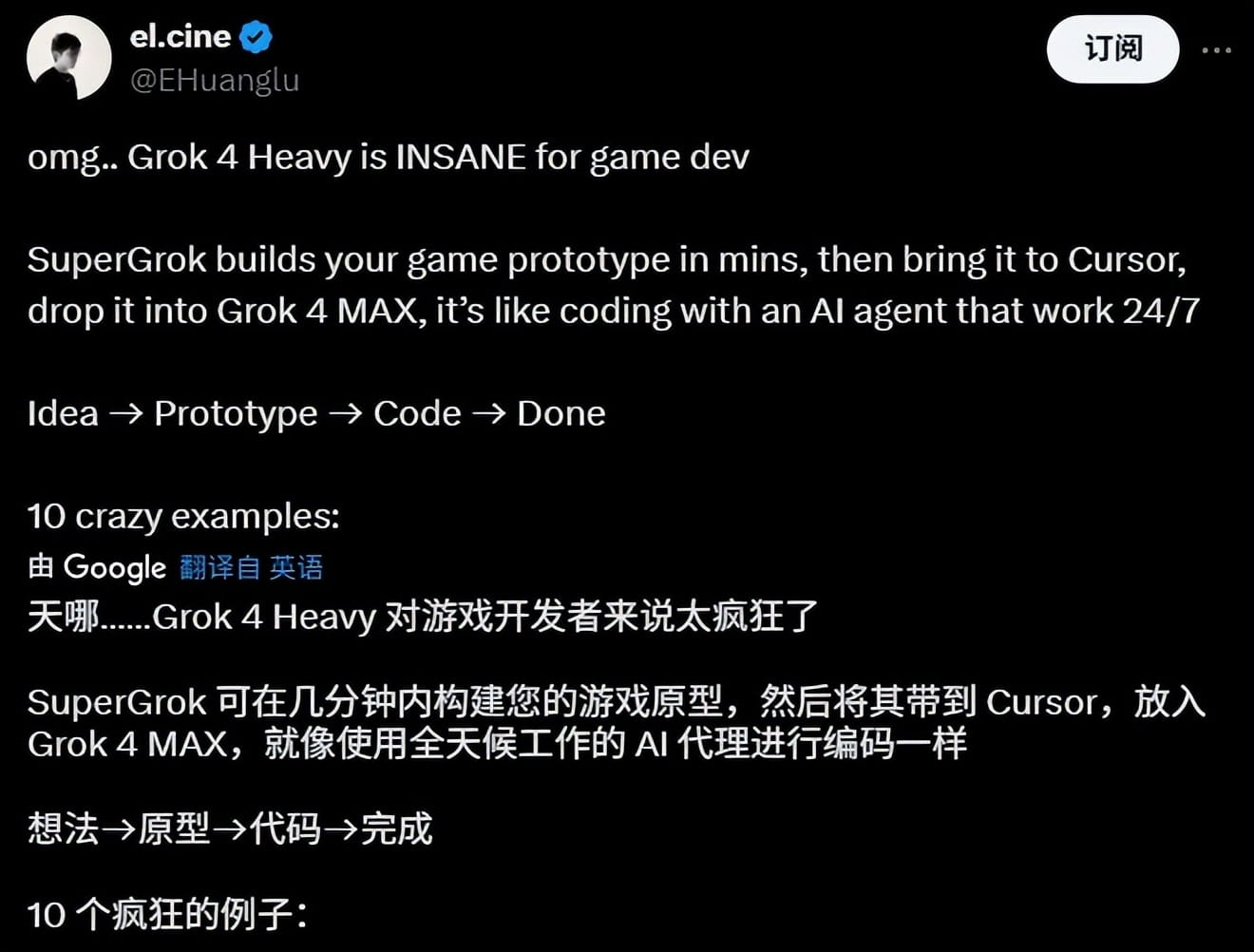
With such exquisite character design and visual effects, can you believe it was generated by AI?
Developers can now generate a complete, playable game simply by using prompt words. The entire game is encapsulated in an independent HTML file, requiring no external images or server resources, running solely on pure JavaScript and HTML5 Canvas.
Game experience link: https://rodpadev.github.io/space-x-slingshotter-game/
More powerful, Grok 4 can autonomously integrate required 3D models and textures and will automatically attach links to the sources of all resources, saving the tedious work of manual coding and material searching, greatly enhancing development efficiency.
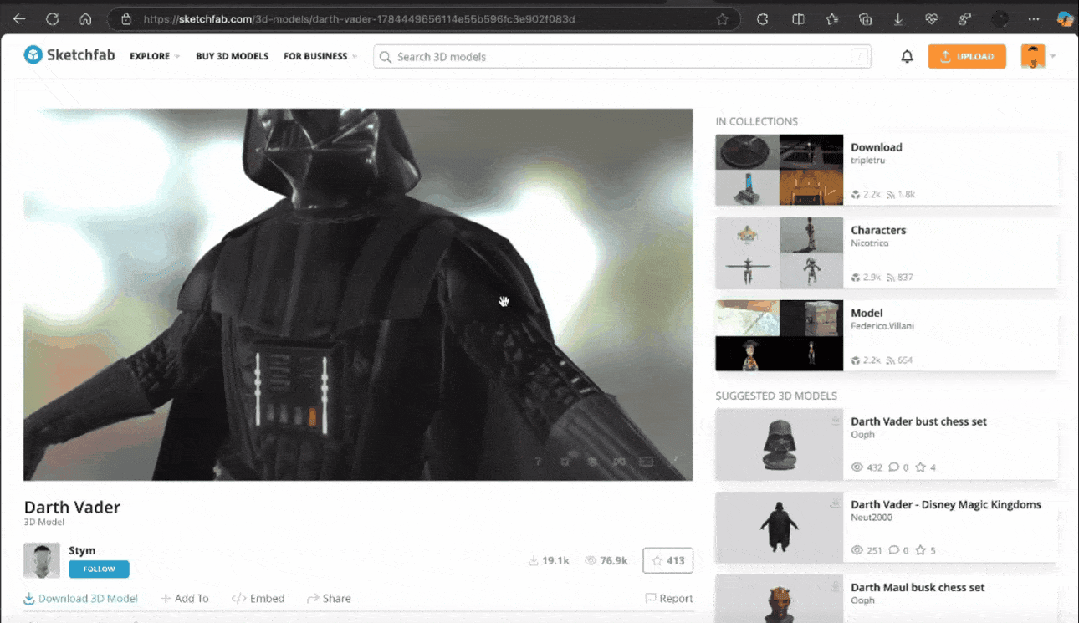
From idea to prototype, then to complete code, the entire process is seamlessly connected. Developers can collaborate with an AI assistant working 24/7, putting the prototype into the development environment for further refinement.
One prompt, one game; perhaps it is opening a new era of 'text generating games.'
\u003cc-162/\u003e


